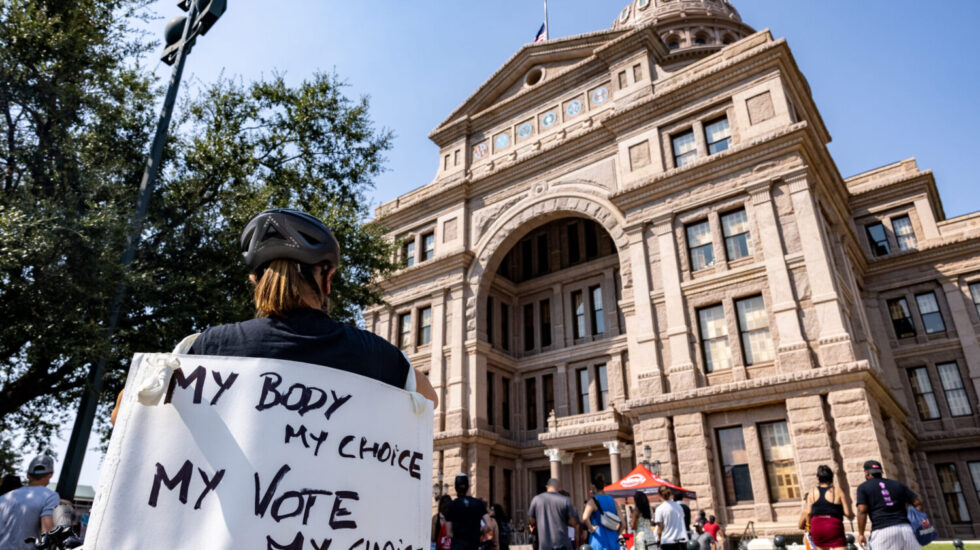Saying it causes “irreparable harm” and represents an “offensive deprivation,” a federal judge ordered Texas to suspend its newly enacted abortion law, which bans the procedure at a point in pregnancy – about six weeks, when fetal cardiac activity is detectable – before most women know they’re carrying.
In a 113-page opinion, U.S. District Judge Robert Pitman wrote that “From the moment S.B. 8 went into effect, women have been unlawfully prevented from exercising control over their lives in ways that are protected by the Constitution.”
“If this situation does not constitute an undue burden,” Pitman continued, referencing Texas’ defense of the law “it is hard to imagine what would.”
Pitman, an Obama-appointee, made a thinly-veiled criticism of the Supreme Court, which failed to grant an emergency appeal that would have suspended the law. “That other courts may find a way to avoid this conclusion is theirs to decide;” Pitman wrote. “This Court will not sanction one more day of this offensive deprivation of such an important right.”
The Department of Justice initiated the lawsuit that prompted Pitman’s decision, which Attorney General Merrick Garland called “a victory for women in Texas and for the rule of law.”
White House press secretary Jen Psaki added “The fight has only just begun, both in Texas and in many states across this country where women’s rights are currently under attack.” Psaki said President Joe Biden “will continue to stand side-by-side with women across the country to protect their constitutional rights.”
The Texas Tribune adds important context on the impact of the judge’s ruling:
.. it’s unclear how U.S. District Judge Robert Pitman’s order may affect access to abortions in the state — or if it will at all. The state of Texas quickly filed a notice of appeal and will almost definitely seek an emergency stay of Pitman’s order in the 5th Circuit Court of Appeals, which is known as perhaps the nation’s most conservative appellate court.
Slate adds, “If Pitman’s decision is eventually overturned, doctors who perform abortions in the interim can still be sued. But at least for now, the playing field tilts against the states too-clever-by-half effort to harm women while skirting judicial review.”
“Though the court’s ruling offers a sigh of relief, the threat of Texas’ abortion ban still looms over the state as cases continue to move through the courts. We already know the politicians behind this law will stop at nothing until they’ve banned abortion entirely,” Brigitte Amiri, deputy director of the ACLU Reproductive Freedom Project said in a statement. “This fight is far from over, and we’re ready to do everything we can to make sure every person can get the abortion care they need regardless of where they live or how much they make.”
The Associated Press reports on the impact of the law:
Abortion providers say their fears have become reality in the short time the law has been in effect. Planned Parenthood says the number of patients from Texas at its clinics in the state decreased by nearly 80% in the two weeks after the law took effect.
Some providers have said that Texas clinics are now in danger of closing while neighboring states struggle to keep up with a surge of patients who must drive hundreds of miles. Other women, they say, are being forced to carry pregnancies to term.
The Supreme Court is set to hear a case challenging Roe v Wade in December, which will impact abortions rights across the country.
Earlier this week, the Guttmacher Institute, a pro-choice research organization, reported that “more abortion restrictions have been enacted this year than any other, with 19 statehouses passing 106 new limitations on the procedure.”



